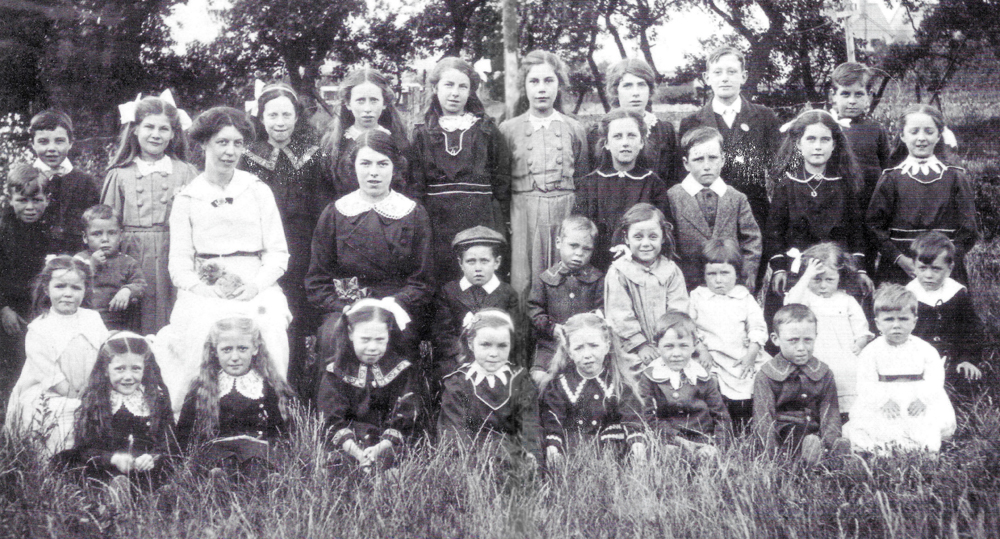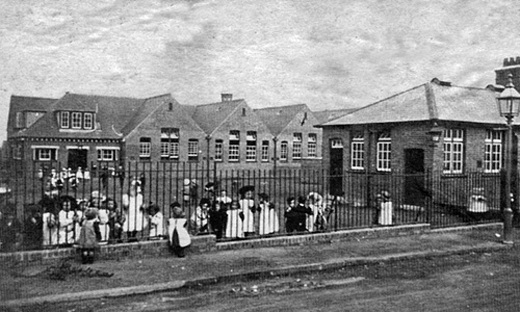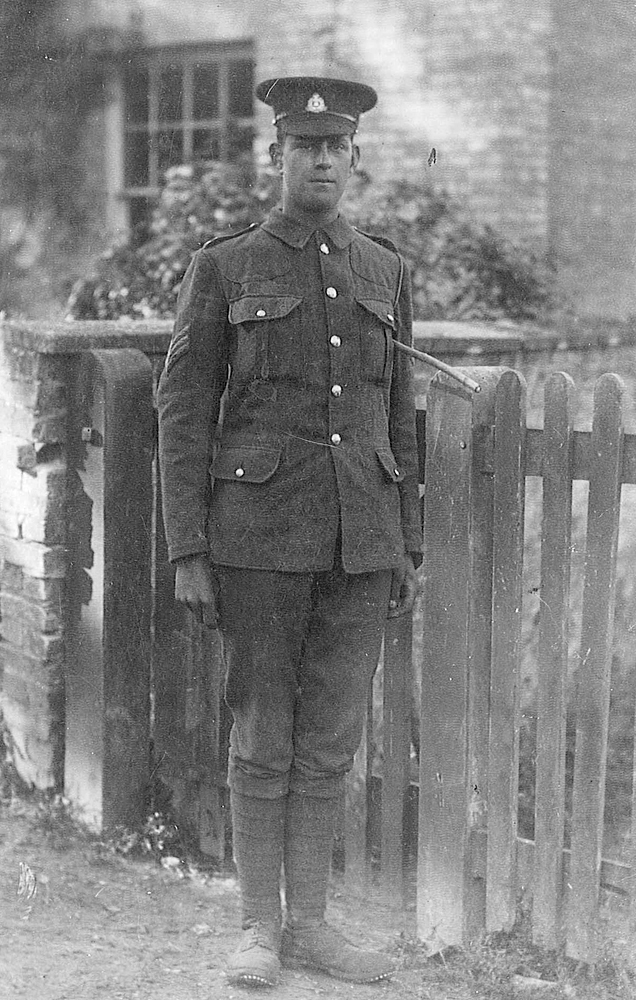World War I - The children’s war
Life for the children of the town was soon to change.
Some changes were felt by individual children, with their male relatives going off to fight and their female relatives having to take a growing role in supporting the family which remained at home.
Other changes had a collective effect on them. Some affected them directly, such as the conversion of the Queens Road Schools into an Auxiliary Hospital for troops recovering from injuries sustained at the front. Others provided huge excitement, such as the arrival of the troops who had to be accommodated in the town in the early months of the war.

Some of the children from Huntingdon Terrace in Queens Road in the summer of 1914
A disrupted education

Queens Road Schools prior to conversion to the Auxiliary Hospital
Shortly after the start of the war it was agreed that there was a need to offer accommodation for the convalescence of troops injured at the front. Due to their proximity to the railway station, the buildings of newly completed Queens Road Schools were to be converted for this use. This meant that all the children attending there had to find other places to receive their lessons. Alternatives had to be found quickly to enable the conversion process to begin.
The upper classes of the school were transferred to the Town Hall, although even this proved to be disrupted as the heating system was not adequate and the hall was often used for rehearsals for fundraising events. The remainder of the students were relocated to the old British School in Market Hill and the infants went to the Congregational Church Schoolroom in Kneesworth Street (now the Museum).
Supplies of paper were also difficult to obtain and, in many classes, pupils reverted to the use of slates for their lessons.
When the call to arms was answered by some of the school staff the children also had to get used to new teachers taking over their classes. There was not always enough and for some, especially the boys, it was an unexpected change to be taught by women.
Among the teachers who left for the front were Mark Hewett, Harold Kirkham and Mr. Taylor, all from the County Council Schools.
The infant’s Headmistress, Daisy Clark, gave over 5,000 hours service to the Hospital.

A time of great excitement
The children will have seen many changes to daily life in the town, especially with the arrival of so many troops mustering on Therfield Heath prior to embarkation to the fighting.
One can only imagine the excitement generated by the sights and sounds of so many men and equipment arriving and having to be accommodated.
Some of the men coming through the town were billeted with local families and this will have provided an opportunity for many children to learn about the men staying with them and hear stories from places they may never had heard of before.
The children’s contribution to the war effort
Everyone was expected to help support the men either fighting on the front line or recovering from injury at home, not least the town’s children.
In their own way they contributed greatly to the moral and wellbeing of the troops. For example, they -
Collected eggs for the soldiers in the hospital, even writing their names on them so the men would know who they came from.
Collected vegetables and other goods for the hospital kitchens.
Ran messages around the town.
Sent the men Christmas treats of cigarettes, chocolate and handkerchieves embroidered with the soldier’s initials by the girls, together with cards painted by the children.
Although many of their contributions went unrecorded and often unrecognised, the children played an important role in helping the town cope with the demands placed upon it by the military presence. Their gifts to the troops at Christmas was, however, gratefully acknowledged by some of the men’s commanding officer in a letter he sent back to them.
A "thank you" from the front
"I must thank you on behalf of the Company for the splendid parcels which arrived today. I cannot tell you how much we appreciate gifts of this sort. The men were perfectly delighted. Please thank all the girls in the school and tell them that they could have sent nothing that could have pleased the men more.
"It is so nice for us to think that those at home remember us, of course we do not imagine for a moment that they don’t but it is always a great pleasure to get a parcel from England with real English things in it."
Extract from a letter from Lieutenant T. Bevan to the children of the Church of England School